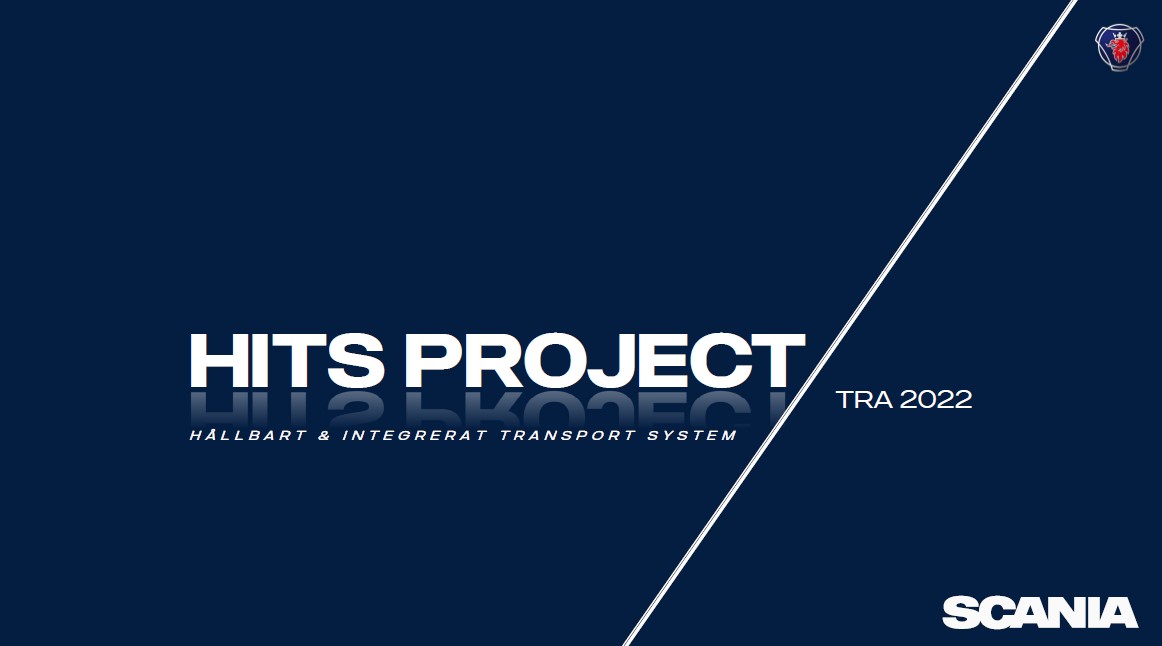Friday, November 11th, 2022

HITS (Sustainable and Integrated Urban Transport System) is a cooperative initiative between a number of different industries that aims to develop efficient transport solutions and create cleaner and safer cities. The project participants include property owners, city authorities, municipalities, engineering and logistics companies and research institutions. The project is led by Scania and the project coordinator is CLOSER. HITS is a 4-year project with the vision to “Understand and create the conditions for a sustainable transport system in the city”
The challenges of changing towards a sustainable society will become increasingly complex while the pace of change is being accelerated. The sustainable solutions of the future require increased cooperation between different actors as well as capacity for a rapid integration of new technology, methodology and new business models. The transport system in urban environments is already stressed and forwarders and transport companies are forced to meet customers’ increased expectations for speed and flexibility by deploying an increasing number of vehicles with smaller load capacity such as vans (3.5 tonnes) and cargo bikes which in turn risk becoming part of the problem. We need to find system solutions with a high degree of freight consolidation (ie sized and well-stocked vehicles) as far as possible into city centers to reduce congestion, vehicle kilometers and energy use.
During the first 2 years several studies have been carried out, which have contributed to a better understanding of the challenges that exist. The objective for the two coming years is to start applying the knowledge by testing and evaluating them as simple prototypes, in real environments or through different types of simulations in order to thereby learn and refine the early concepts and future scenarios so that the tested solutions can rise to the “level of readiness” as well as how knowledge of how system integration can be developed in a safe and sustainable way.
Above all, it is important to learn more about the impact of business models and obstacles to creating sustainable transport systems. A possible transformation is that several parties can together create new sustainable values in an ecosystem. Digitization is the clearest driving force (probe) for this development to take place.
Another important driving force is how policies are developed. Experience shows that it is not possible to find a solution that is suitable for all cities or to solve all challenges at the same time. We hope to, through broad collaboration and a testing and exploratory methodology, build knowledge that can increase the possibility of successful implementation projects, not only in Swedish cities but also internationally, where we want to see that the societal interests of cities can go hand in hand with a competitive development of the service and transport industry.
The areas we have found most interesting and will focus the project on are how
Schematically, one could describe the project structure as follows.
The consortia consist of Scania, KTH, Stockholms Stad, Södertörns kommunerna, Urban Services, Fabege, Atrium Ljungberg, Ragn-Sells, HAVI, Axfood, M Logistics, CLOSER, IVL, SSPA (RISE).
HITS will showcase the results of the project at the ALICE booth and will welcome all people keen to know more, on: